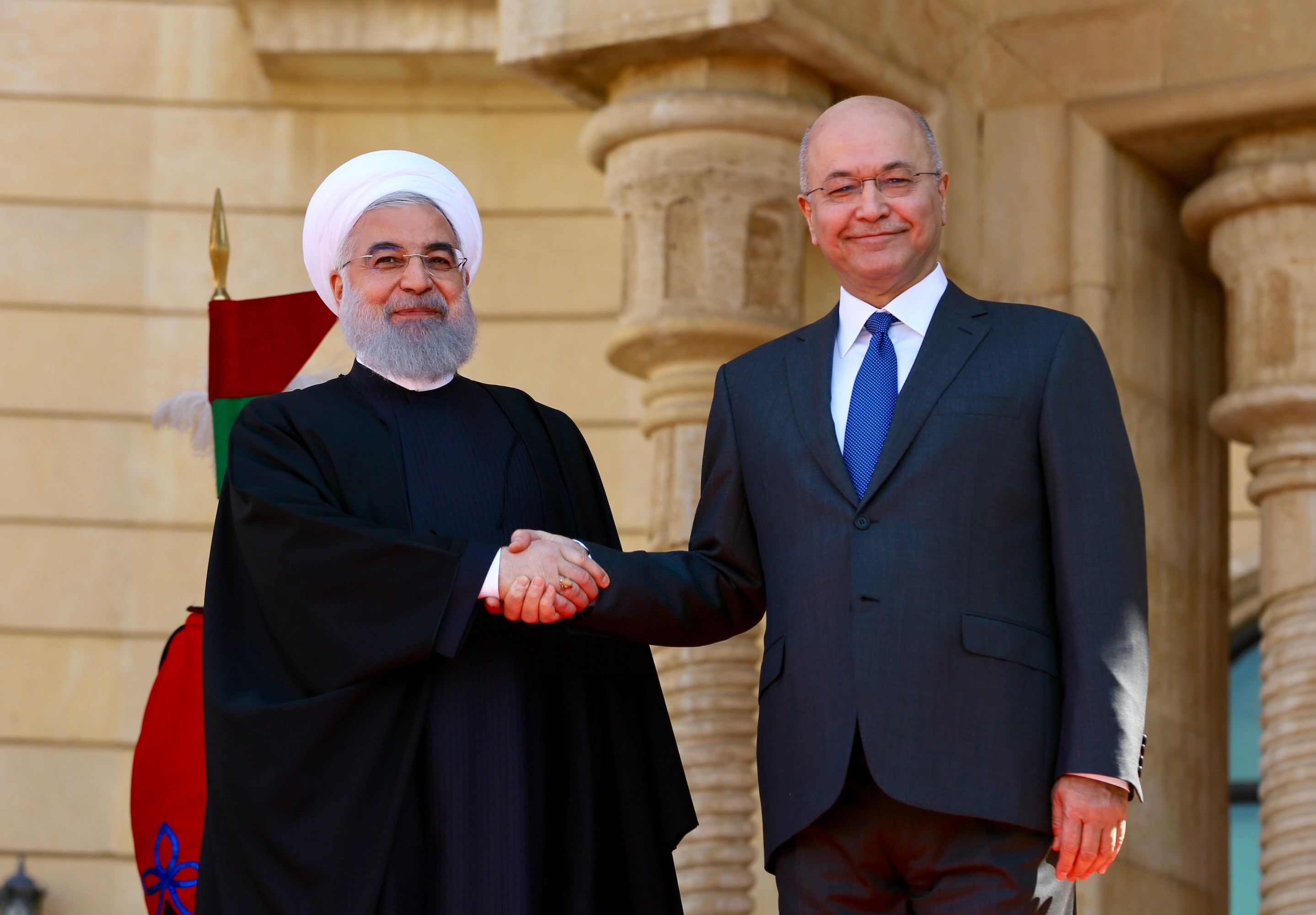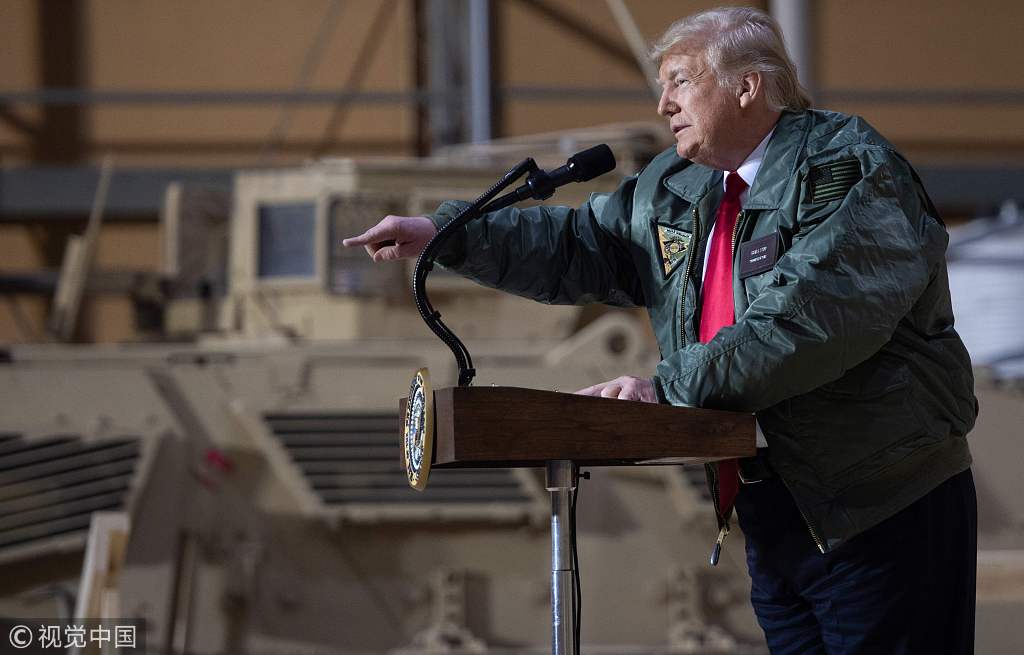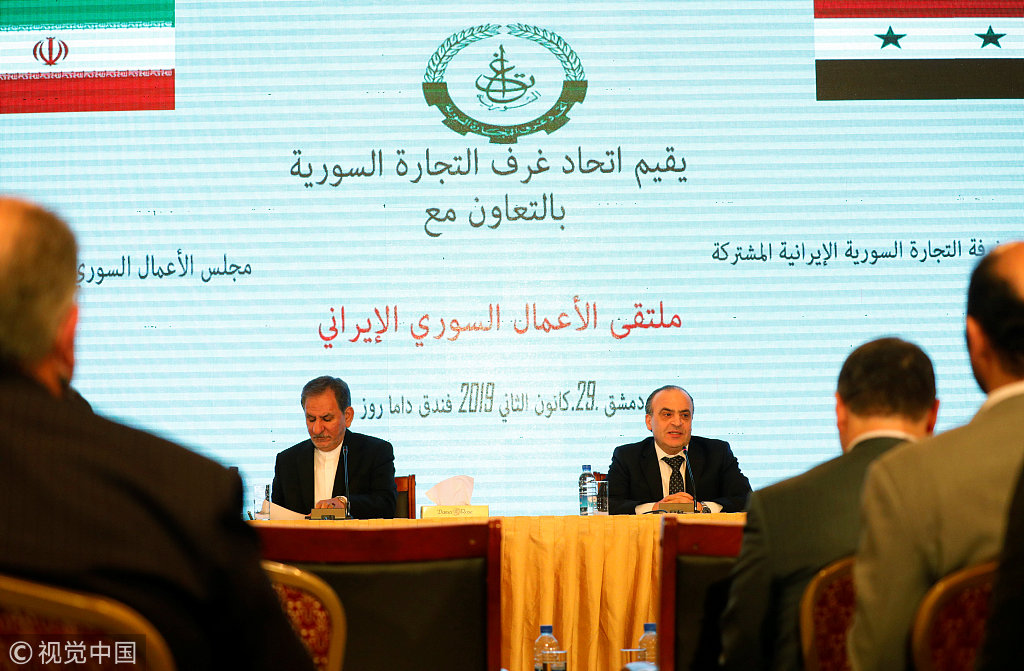Rouhani's Iraq visit: Old ties with new dynamics
- By Jin Liangxiang
 0 Comment(s)
0 Comment(s) Print
Print E-mail China.org.cn, March 17, 2019
E-mail China.org.cn, March 17, 2019

Iranian President Hassan Rouhani paid a three-day visit to Iraq from March 11 through 13. During his visit, President Rouhani, accompanied by a large commercial delegation, met with the Iraqi President, Prime Minister and a number of dignitaries. While the visit was a natural continuation of traditional relations between the two regional powers, it also forms part of Iran's strategy to counter U.S. influence in the region, and will produce long-term implications.
Albeit the eight-year war from 1981 to 1988, Iran and Iraq have traditionally held strong ties and cultural bonds. The two countries both have the largest Shiite populations in the region, and also host major Shiite holy cities: Karbala and Najaf in Iraq; Qum and Mashhad in Iran. Hence, exchanges between ordinary people of the two neighbors are very frequent.
Some special periods in history even witnessed the special bonds between the two. Ruhollah Khomeini, the founding father of the Islamic Republic of Iran and the leader of the Islamic revolution in 1979, was exiled to Iraq after leading the demonstrations against Shah in 1963, and spent several years in Najaf. The Larijani family, who occupy a storied role in Iranian politics, are also strongly attached to Iraq. Ali Larijani, Iran's Majlis speaker for several terms, and his brothers, including Sadeq Larijani, the former Judiciary Chief, were all born in Iraq.
Iraqi Shiite politicians also sought refuge in Iran when they were persecuted by Saddam Hussein's government in the 1990s. These include Ibrahim Jafari, former Prime Minister of Iraq in the Iraqi Transitional Government from 2005 to 2006, and Nouri Kamil Mohammed Hasan al-Maliki, also a former Prime Minister of Iraq from 2006 to 2014.
However, despite these ties, President Rouhani's visit is also a part of Iran's strategy resisting the U.S. and expanding its own influence. When the U.S. toppled Saddam Hussein's regime in 2003, which had been hostile to Iran, they unwittingly reignited ties between the two countries when Shiites were elected to power. Despite pressure from the U.S., Iraq has refused to assist the U.S. in containing Iran.

Iran has also worked hard to strengthen relations with its Shiite neighbor. When Iraq was confronting the threat of ISIS, Iran provided economic, political and military support. Then, shortly after U.S. President Donald Trump paid a surprise visit to U.S. troops in Iraq on December 26, 2018 without approval of the Iraqi government, Mohammed Zarif, Iran's foreign minister, paid a visit to Iraq on January 14, 2018, which was regarded by observers as a stark counterbalance to American influence.
Hassan Rouhani's visit further consolidates Iran's influence in Iraq. During the visit, the two neighbors agreed to cooperate on transit, oil, joint industrial work, and the dredging of Arvand River. The visit is believed to be a turning point in relations between the two.
In addition to enhancing bilateral relations, Iran also intends to make the visit as a step to overcome U.S. sanctions. After the U.S. restored sanctions against Iran in 2018, Iran has been working to break through the sanctions, and Iraq is a part of such efforts. Despite U.S. pressure, Iraq and Iran have retained mutual trade relations. The two are also talking about banking cooperation. For instance, the Iraqi Rafidain Bank expressed its readiness to establish branches in Iran.

As mentioned, this visit will also produce long-term geopolitical implications. After Iraq war in 2003, Iran was able to form strong relations with Iraq, Syria and Lebanon forming what has come to be known as the "Shiite Arc." During the Syrian civil war, Iran has also been able to further establish its influence in Syria. Currently, Iran is also talking about increasing its investments in Syrian infrastructure construction. Ultimately, Iran's economic relations with Iraq and Syrian will be further strengthened in addition to its political and strategic relations with the two countries.
As is known, the Middle East in general has been defined by the geopolitical competition in the last decade between the camp led by Iran and the one led by Saudi Arabia. Iran will further strengthen its positions in the region as a result of this visit.
Dr. Jin Liangxiang is Senior Research Fellow with the Center for West Asian and African Studies, Shanghai Institutes for International Studies. For more information please visit:
http://91dzs.com/opinion/jinliangxiang.htm
Opinion articles reflect the views of their authors, not necessarily those of China.org.cn.
If you would like to contribute and have specific expertise, please contact us at opinion@china.org.cn.





